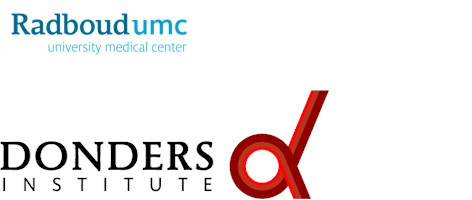Stichting Radboud Universitair Medisch Centrum Nijmegen
Team Leaders
Prof. Christian F Beckmann
Team Staff
Institute Presentation
The Donders Institute for Brain, Cognition and behaviour is a renowned institute for research and higher education in neuroscience. The Donders Center for Medical Neuroscience is a department within the Donders Institute and RADBOUDMC that focuses on interdisciplinary neuroscientific research that has potential implications for medicine and healthcare, including e.g. neurodevelopment, neurology, psychiatry, ophtalmology.
1. Statistics Imaging in Neuroscience research group:
As part of the Institute, the Statistics Imaging in Neuroscience (SIN) research group, led by Prof. Christian Beckmann focuses on the development and applications of novel statistical methods using machine learning and multivariate statistics, such as independent component analyses (ICA), connectopic mapping, and normative models to better describe and understand sources of in dividual differences in brain structure and function in health and disease.
2. The Psychatry and Neuroimaging Genetics group:
The Psychiatry and Neuroimaging Genetics group led by Dr. Emma Sprooten specializes in data-driven integration of genomic and neuroimaging data to understand different biological processes underlying individual variation in brain structure and function, and psychological traits and mental health.
Role in the FAMILY project:
The role of the RADBOUDMC team in the FAMLY project is to derive new data-driven, multimodal features that effectively describe individual differences in brain, genes and behaviour, and use these to model individual differences in risk and resilience of mental health problems. These multimodal features will integrate different quantitative measures of underlying biological processes and thereby often be more interpretable in terms of underlying mechanisms compared to within-modality features, as they benefit from variation driven by processes that cross biological levels. In addition, they reduce the data into a smaller number of variables.
Together, this will improve our understanding and prediction of individual differences in the presence and severity of mental health problems within families.

Contact
Stichting Radboud Universitair Medisch Centrum Nijmegen
Department of Cognitive Neuroscience
Kapittelweg 29
6525EN Nijmegen
The Netherlands
Visit website Visit website